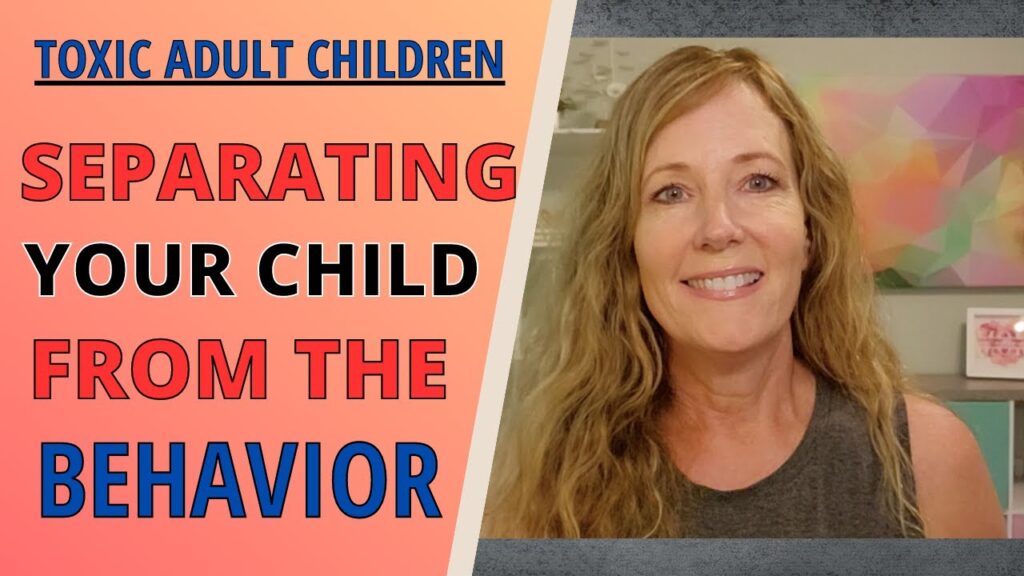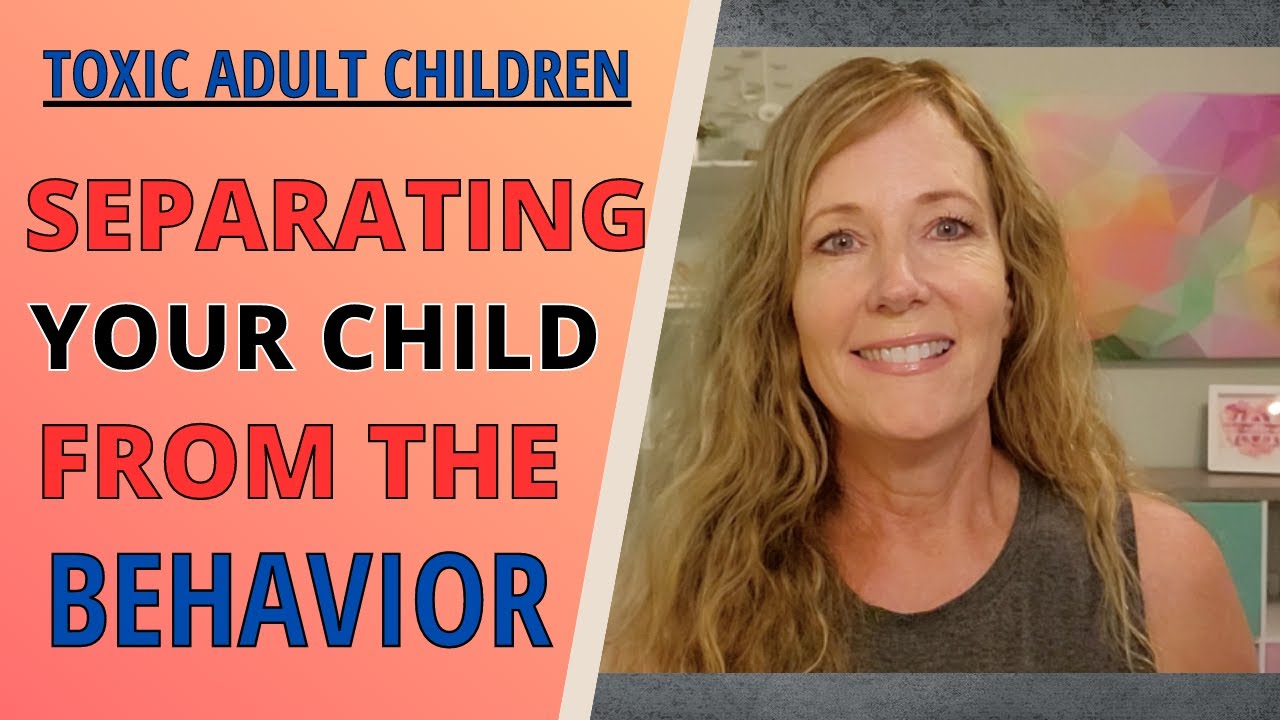
Understanding and Coping with Toxic Adult Children: A Comprehensive Guide
Navigating family dynamics can be complex, especially when dealing with adult children exhibiting toxic behaviors. The term “toxic adult children” refers to grown-up offspring who consistently display patterns of behavior that are emotionally damaging, manipulative, or abusive towards their parents and other family members. Recognizing these patterns is the first step toward understanding and addressing the challenges they present. This guide aims to provide a comprehensive overview of toxic adult children, including identifying characteristics, exploring potential causes, and offering strategies for coping and setting healthy boundaries.
Defining Toxic Behavior in Adult Children
What exactly constitutes toxic behavior? It’s more than just occasional disagreements or periods of strained relations. Toxic behavior is characterized by a consistent pattern of actions and attitudes that undermine another person’s emotional well-being. These behaviors can manifest in various ways:
- Manipulation: Using guilt, threats, or emotional blackmail to control others.
- Blame-shifting: Refusing to take responsibility for their actions and constantly blaming others.
- Criticism and belittling: Regularly putting down others, making them feel inadequate, or attacking their self-esteem.
- Disrespect and boundary violations: Ignoring personal boundaries, invading privacy, and showing a general lack of respect for others’ feelings and opinions.
- Emotional abuse: Using verbal attacks, intimidation, or gaslighting to control and manipulate others.
- Narcissistic tendencies: Displaying a sense of entitlement, lacking empathy, and exploiting others for personal gain.
- Constant drama: Creating unnecessary conflict and chaos in family relationships.
It’s important to note that not all difficult or challenging behaviors are necessarily toxic. However, if these patterns are persistent, pervasive, and causing significant emotional distress, they may indicate a toxic dynamic. Recognizing these behaviors in toxic adult children is crucial for protecting your own mental and emotional health.
Identifying Characteristics of Toxic Adult Children
While every situation is unique, there are some common characteristics often observed in toxic adult children. These traits can help you identify potential patterns and understand the dynamics at play:
- Lack of empathy: They struggle to understand or care about the feelings of others.
- Sense of entitlement: They believe they deserve special treatment and have unrealistic expectations.
- Difficulty with accountability: They rarely take responsibility for their actions and often blame others for their problems.
- Need for control: They try to control situations and people around them.
- Manipulation tactics: They use guilt, threats, or emotional blackmail to get what they want.
- Constant need for attention: They crave attention and validation from others, often at the expense of others’ well-being.
- Inability to maintain healthy relationships: They struggle to form and maintain healthy, balanced relationships.
These characteristics often stem from underlying issues, such as unresolved childhood trauma, personality disorders, or substance abuse. Understanding the potential roots of their behavior can offer some insight, but it doesn’t excuse the toxic actions.
Exploring Potential Causes of Toxic Behavior
Understanding the potential causes behind toxic adult children‘s behavior can provide a more comprehensive perspective, although it does not excuse or justify the behavior itself. Several factors can contribute to the development of these toxic patterns:
- Childhood trauma: Experiences such as abuse, neglect, or witnessing domestic violence can have a profound impact on a child’s development and lead to toxic behaviors in adulthood.
- Dysfunctional family dynamics: Growing up in a family with unhealthy communication patterns, enmeshment, or unresolved conflicts can contribute to toxic behaviors.
- Parenting styles: Authoritarian or permissive parenting styles, as well as inconsistent discipline, can contribute to the development of toxic traits.
- Mental health issues: Conditions such as personality disorders (e.g., narcissistic personality disorder, borderline personality disorder), anxiety disorders, and depression can manifest in toxic behaviors.
- Substance abuse: Alcohol or drug addiction can significantly impair judgment and behavior, leading to toxic interactions.
- Learned behavior: Children may learn toxic behaviors by observing and imitating the actions of their parents or other significant figures in their lives.
It’s crucial to remember that identifying potential causes is not about making excuses for toxic adult children. Instead, it’s about gaining a deeper understanding of the complexities involved and informing strategies for coping and setting boundaries. [See also: Understanding Personality Disorders]
The Impact of Toxic Adult Children on Parents
Dealing with toxic adult children can take a significant toll on parents’ emotional, mental, and physical well-being. The constant stress, manipulation, and disrespect can lead to:
- Increased stress and anxiety: The unpredictable and volatile nature of toxic relationships can create chronic stress and anxiety.
- Depression: The emotional abuse and negativity can lead to feelings of hopelessness and depression.
- Guilt and self-blame: Parents may question their parenting skills and blame themselves for their child’s behavior.
- Low self-esteem: Constant criticism and belittling can erode self-esteem and confidence.
- Social isolation: Parents may withdraw from social activities and isolate themselves from friends and family due to shame or embarrassment.
- Physical health problems: Chronic stress can contribute to various physical health problems, such as high blood pressure, heart disease, and weakened immune system.
- Financial strain: Some toxic adult children may exploit their parents financially, leading to financial instability.
It is vital for parents in these situations to prioritize their own well-being and seek support.
Strategies for Coping with Toxic Adult Children
Coping with toxic adult children requires a strategic and proactive approach. Here are some strategies that can help:
- Set clear boundaries: Define your limits and communicate them clearly and firmly. This includes what behaviors you will and will not tolerate.
- Enforce consequences: Follow through with consequences when boundaries are crossed. This might involve limiting contact, ending conversations, or refusing to engage in certain topics.
- Limit contact: If the toxic behavior is severe and persistent, consider limiting or even cutting off contact. This can be a difficult decision, but it may be necessary for your own well-being.
- Practice self-care: Prioritize your physical and emotional health. Engage in activities that bring you joy and relaxation, such as exercise, meditation, or spending time in nature.
- Seek professional help: A therapist or counselor can provide support and guidance in navigating this challenging relationship. They can help you develop coping strategies and set healthy boundaries.
- Detach with love: This involves accepting that you cannot control your adult child’s behavior and focusing on your own well-being. It means loving them from a distance without enabling their toxic behaviors.
- Focus on your own happiness: Don’t let your adult child’s behavior dictate your happiness. Focus on your own goals, interests, and relationships.
- Join a support group: Connecting with others who are experiencing similar challenges can provide valuable support and validation.
Remember, setting boundaries and limiting contact are not acts of punishment but rather acts of self-preservation. Your well-being is paramount.
Setting Healthy Boundaries with Toxic Adult Children
Setting and maintaining healthy boundaries is crucial when dealing with toxic adult children. Boundaries define what you are willing to accept in a relationship and what you are not. Here are some tips for setting effective boundaries:
- Be clear and specific: Clearly define what behaviors are unacceptable to you. For example, “I will not tolerate being yelled at or insulted.”
- Be assertive: Communicate your boundaries calmly but firmly. Avoid being apologetic or defensive.
- Be consistent: Enforce your boundaries consistently. If you allow exceptions, it will undermine your credibility.
- Be prepared for resistance: Toxic adult children may resist your boundaries and try to manipulate you into changing them. Stand your ground and reaffirm your limits.
- Focus on your own behavior: You cannot control your adult child’s behavior, but you can control your own. Focus on how you will respond when your boundaries are crossed.
- Don’t JADE (Justify, Argue, Defend, Explain): When setting a boundary, avoid the temptation to justify, argue, defend, or explain your decision. Simply state your boundary and leave it at that.
- Be realistic: Setting boundaries is an ongoing process. It may take time and effort to establish and maintain them.
Remember that setting boundaries is an act of self-respect and self-care. It is essential for protecting your emotional and mental well-being. [See also: The Importance of Setting Boundaries]
When to Consider Cutting Off Contact
Deciding to cut off contact with toxic adult children is a difficult and painful decision. However, in some cases, it may be necessary for your own well-being. Consider cutting off contact if:
- The toxic behavior is severe and persistent: If the abuse, manipulation, or disrespect is ongoing and causing significant emotional distress.
- Boundaries are repeatedly violated: If your adult child consistently ignores your boundaries and refuses to respect your limits.
- You are experiencing significant negative impacts on your mental and physical health: If the relationship is causing you anxiety, depression, or other health problems.
- You have tried other strategies without success: If you have attempted to set boundaries, seek professional help, and detach with love, but the situation has not improved.
- Your safety is at risk: If you feel threatened or unsafe in the presence of your adult child.
Cutting off contact does not mean you don’t love your child. It means you are prioritizing your own well-being and protecting yourself from further harm. It is a difficult decision, and it’s important to seek support from a therapist or counselor to help you through the process.
Seeking Professional Help and Support
Dealing with toxic adult children can be incredibly challenging, and it’s essential to seek professional help and support. A therapist or counselor can provide:
- Emotional support: They can offer a safe and non-judgmental space to process your feelings and experiences.
- Coping strategies: They can help you develop effective strategies for coping with the toxic behavior and setting healthy boundaries.
- Perspective: They can provide an objective perspective on the situation and help you see things more clearly.
- Communication skills: They can teach you effective communication skills for interacting with your adult child.
- Self-care strategies: They can help you prioritize your own well-being and develop self-care practices.
In addition to therapy, consider joining a support group for parents of adult children. Connecting with others who are experiencing similar challenges can provide valuable support, validation, and practical advice. Remember, you are not alone, and there is help available.
Conclusion: Prioritizing Your Well-being
Dealing with toxic adult children is a complex and emotionally draining experience. It’s crucial to remember that you are not responsible for your adult child’s behavior, and you have the right to protect your own well-being. By setting healthy boundaries, practicing self-care, and seeking professional support, you can navigate this challenging relationship and prioritize your own mental and emotional health. Remember that focusing on your happiness and creating a fulfilling life for yourself is not selfish; it’s essential for your survival and well-being. While the situation may be difficult, you have the strength and resilience to cope and create a healthier future for yourself.

